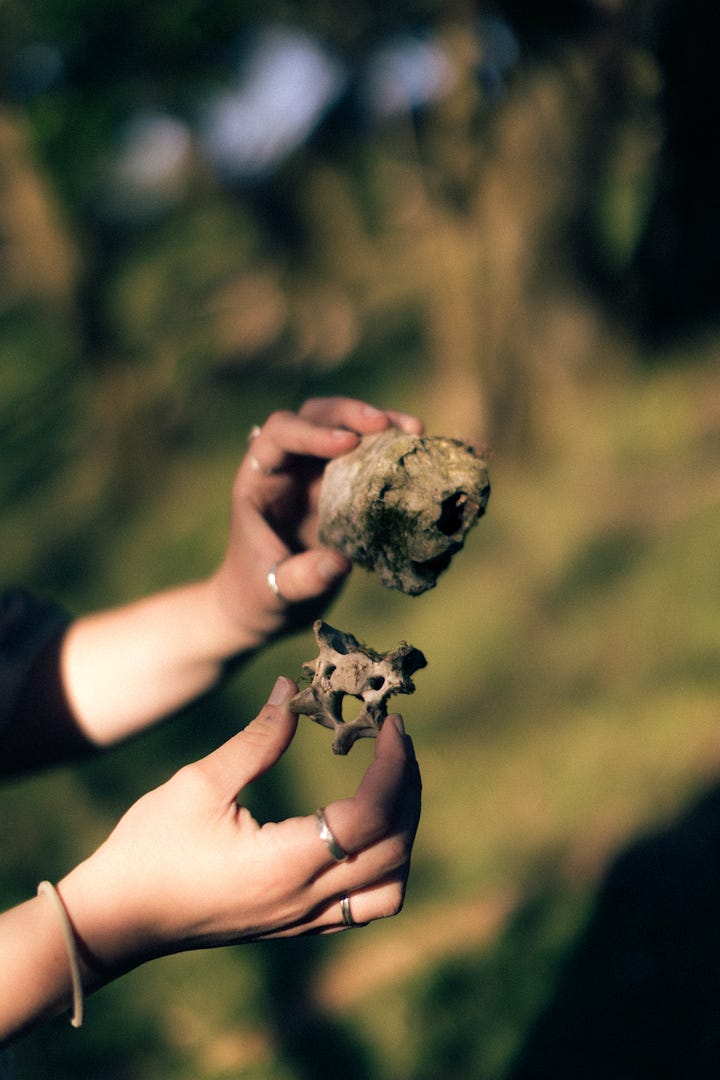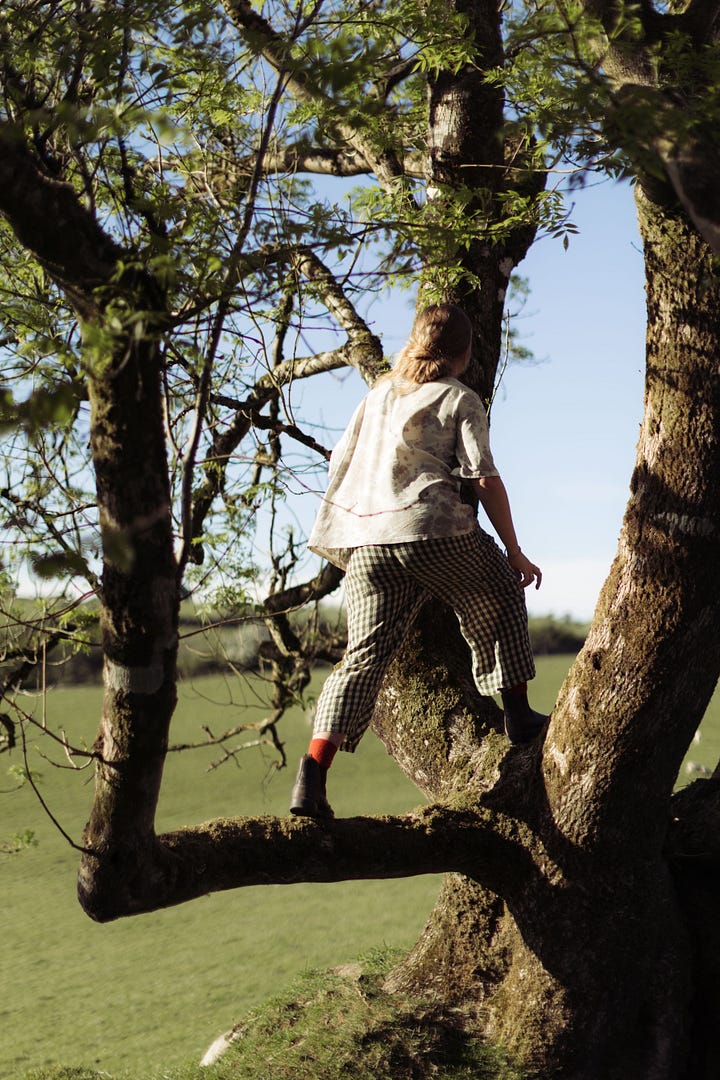Last week I was there, nestled in a little cabin deep in Bodmin Moor surrounded by ancient native trees and stone ruins. With only sheep for neighbours and completely switching off from the digital world, my partner and I spent four days away from our devices and finding our way back into the landscape around us. The emotions that revealed themselves from the reliance on my phone in particular were rather confronting, in a way I hadn't experienced before when just taking Instagram off my phone over the weekends. So much so, it warranted writing about my time there.
The opportunity to entirely switch off is one that rarely presents itself in modern life. To do lists and emails follow us like shadows lurking each time we open our phones. Especially as someone who works freelance, tuning out the work headspace is a near impossible task at times.
The first evening without having the option of watching a film or catching up on social media lead us to playing scrabble after a walk through the woodlands. I found my thumbs twitching slightly between turns, my mind looking for things to satisfy a strange, quiet hunger for dopamine I was oblivious to before locking my phone away in a box.
My screen time wasn’t particularly awful by any means, averaging around 3-4 hours a day recently, but it was previously more like 2 hours and that increase was one that I hadn’t consciously noticed. It’s a strange normalised thing in our culture to spend hours on end staring at various forms of light boxes, we work on them, we unwind with them, our reliance on them is trained from a young age. This was the first instance where I became truly aware of how frequently I went to check my phone.
Without any forms of digital entertainment, and being blessed with nothing but sunshine, most of our stay was spent outside. Sun bathing, reading, foraging, talking, playing games. With the vast views of rolling valleys and temperate rainforest carpeted with bluebells on our doorstep, it would have been rude not to spend most of the days exploring.
We followed ancient pathways up to Castle Bury, an Iron Age hill fort which some scholars believe to have had links with King Arthur. Not much remains, but the landscape is breathtaking and even visible from the bed in the cabin too.
With just my camera in hand, I found myself noticing intricate details in the dappled evening sun. Moss covered deer and sheep bones half buried in the dense leaf litter, twisting branches of ancient Hawthorne, oak and rowan.


On a particularly warm day we found a beautiful swim spot along the river Fowey, walking along the winding banks to find a deep pool to cool off in. I think this area of Cornwall is particularly underrated, it’s so well known for the wide stretching beaches and turquoise summer waters that the wild moorland is overlooked as a destination to explore. But this is where so much folklore and rich history exists too.
Our time in the cabin was an essential reminder of the wild land that surrounds us, and the wildness that exists within myself too. A wildness that has long been suppressed by the requirements of modern life and existing in a world that was not designed for autistic folk.
There can be a marrying of these two ways of being though, this break was an offering of a reset to hear out my actual thoughts and needs rather than those clouded by social media and the overly accessible online noise.
This isn’t an ad, but I would like to thank Unplugged for having me in the beautiful new cabin in Cornwall named Elsa. My experience far superseded my expectations and I came away with a much needed shift of perspective.
If you’d like to learn more about their stays you can visit their website here.
And if you would like to stick around to hear more about my Cornwall ramblings and adventures, you can subscribe below.








What a beautiful, moving reflection — thank you for sharing it. Your words carry such clarity and gentleness, and they quietly remind us of something so easily forgotten: that the natural world can still speak to us, if we’re quiet enough to listen. It’s powerful to read how the stillness of the moor, and the space between notifications, opened a window back to your own rhythms — both tender and wild. I hope that reconnection continues to ripple through the days ahead. And thank you, too, for bringing light to the quieter corners of Cornwall — your description of the land, the bones, the bluebells, is pure magic.
This is stunning. Your line “a wildness that exists within myself too” gave me chills. We just spent five days in Cornwall - and while our trip wasn’t entirely unplugged, it stirred something similar. Every stone path and folk song felt like a reminder of how much more we can hear when we get quiet. Thank you for this.
https://open.substack.com/pub/thebenthalls/p/too-young-to-get-old-notes-from-cornwall?utm_campaign=post&utm_medium=web